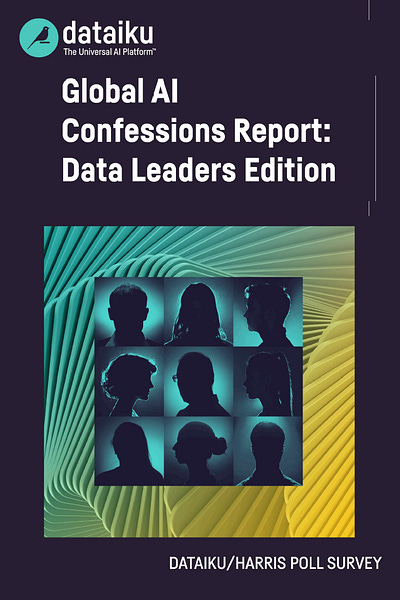UAE data leaders admit they cannot trace AI decision-making
UAE AI & data science teams get more credit from management than peers globally
#UnitedArabEmirates #datascience – Nearly all UAE data leaders lack full visibility into how AI systems make decisions and 72 percent trust AI agents to make autonomous business decisions without explainability, according to research by AI platform provider Dataiku. The Global AI Confessions Report found that 94 percent of UAE data leaders admit they lack full visibility into how AI systems make decisions, but only 17 percent always require AI systems to demonstrate explainability, amongst the lowest rates globally. The findings highlight governance risks as 62 percent express limited confidence their organisation’s AI systems could pass basic decision audits.
Meanwhile, when AI delivers, UAE AI and data science teams are most likely to get the credit (40%) ahead of business or IT leaders, compared to a global average of 32%. Conversely, when AI causes a business loss, 33 percent will hold the AI and data science team accountable and 32 percent will blame the CIO.
The Global AI Confessions Report surveyed more than 800 senior data executives across eight countries including the United Arab Emirates.
SO WHAT? – As the country that ranks first in AI adoption globally, public and private sector management in the UAE often finds itself under great pressure to implement AI across organisations. This survey highlights some of the conflicts between rapid adoption and governance practices. Although, 72% of UAE data leaders would still trust an AI agent to make autonomous decisions in critical business workflows, much fewer seek explainability of AI-driven decision-making. In fact, only 17% of UAE respondents said they always require AI systems to “show their work,” underscoring a lack of explainability in enterprise AI. However, seemingly in the absence of systems to track explainability, 40 percent of organisations will blame the data science team for things that go wrong.
Here are some key takeaways from the report:
The Global AI Confessions Report, conducted by The Harris Poll for Dataiku between August 20-29, 2025, surveyed 812 data leaders across eight countries including 100 respondents from the UAE working at companies with annual revenue exceeding $1 billion.
According to the report, only 17 percent of UAE data leaders always require AI systems to show their work, representing amongst the lowest explainability requirements globally, and compares to a global average of 47 percent.
Meanwhile, 94 percent acknowledge lacking full visibility into how AI systems reach decisions.
Nearly two-thirds of UAE respondents, representing 62 percent, express limited confidence their organisation’s AI systems could pass basic decision audits, yet only half have delayed or blocked AI agent deployment due to explainability concerns.
Despite governance misgivings, 72 percent of UAE data leaders would trust AI agents to make autonomous decisions in critical business workflows even without result explanations, suggesting adoption is outpacing responsible oversight implementation.
On the question of accountability, organisations in the UAE are most likely to hold AI and data science teams responsible than their peers. When AI delivers results, AI and data science team is most likely (42%) to get the credit, ahead of business leaders or IT. This is the highest level of recognition worldwide, comparing to a global average of 32 percent.
On the other hand, some 33 percent would blame AI and data science teams for AI-driven business losses, compared to a global average of 25 percent, while 32 precent would hold the CIO accountable. Globally, the report says that one in three respondents would blame the CIO (32%), while 24 percent would blame the CDO.
UAE data leaders prioritise AI system accuracy above all factors, with 57 percent naming performance reliability as their top priority, whilst 55 percent would never allow AI agents to make hiring or firing decisions and 48 percent would exclude AI from legal or compliance matters.
Almost six in ten UAE respondents, representing 59 percent, believe their C-suite overestimates AI system accuracy, whilst 64 percent say leadership underestimates the time and complexity required to make AI production-ready.
Three-quarters of UAE data leaders indicate their company’s AI strategy is driven more by technological ambition than business outcomes, whilst nearly a third have been asked to approve AI initiatives that made them uncomfortable.
The UAE has the lowest percentage globally of data leaders (35%) that expect a CEO to be ousted by 2026 due to AI-related complications, whilst 53 percent feel their own role faces no risk from failure to achieve measurable AI business gains.
ZOOM OUT – According to a recent report from Microsoft’s AI for Good Lab, the UAE ranks first globally in AI adoption with 59.4 percent of the working-age population using AI tools. Singapore ranks second with 58.6 percent adoption, followed by Norway and Ireland. The report found that other Middle East nations show lower adoption rates, with Qatar at 35.7 percent, Saudi Arabia at 23.7 percent, Kuwait at 17.7 percent and Egypt at 12.5 percent. Overall, the report found global AI adoption has reached over 1.2 billion users in less than three years, making it the fastest-spreading technology in human history.
[Written and edited with the assistance of AI]
DOWNLOAD
Read more about AI adoption in the UAE:
UAE leads world in AI adoption rates (Middle East AI News)
Saudi Arabia & UAE lead in sovereign AI adoption (Middle East AI News)
UAE AI usage jumps to 80% among professionals - LinkedIn (Middle East AI News)
Saudi, UAE manufacturers lead GenAI adoption (Middle East AI News)
UAE embraces GenAI media content, West remains wary (Middle East AI News)



